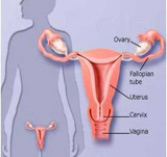
When do you suspect that you have infertility issues? Medically, when you have not fallen pregnant after one year of unprotected intercourse? Emotionally, mentally and physically from the first time you start planning a pregnancy and it just does not happen, you need to start looking at your life style. Lowering the stress levels, considering what you eat and drink and the times you eat what snacks and meals. Women who get pregnant BUT can’t stay pregnant probably due to miscarriages or other reasons are also referred to as being infertile.
Getting pregnant is a process in which the following steps need to occur for a pregnancy to be achieved. Either in the human body or with assistance and then placed in the human uterus.
- Ovulation: This is when the woman’s body releases an egg from one of the ovaries
- The released egg will then move through the Fallopian tube towards the uterus or womb
- A sperm must swim up the cervix to fertilize the egg along the way
- Implantation: The fertilized egg will then adhere or attach itself to the inside of the uterus.
Infertility in women can occur if there are problems with any of the steps of this process. Furthermore, Infertility may be classified as Primary Infertility or Secondary Infertility Depending on previous pregnancy history.
Primary infertility is defined as a couple who has never been or achieved a pregnancy.
Secondary infertility describes a couple who are having trouble conceiving again, even though they have previously achieved pregnancy, they have never achieved a birthing of a healthy living baby.
There are Multiple Causes of Infertility in Women
These are the obvious medical factors that are responsible for infertility in women:
Ovulatory Disorder– Kinds of ovulatory disorder are no ovulation and irregular ovulation. Without ovulation, there is no egg to be fertilized. Ovulatory Disorder is a common cause of infertility in women which occurs in up to 40% of infertile women.
Ovulatory Disorder is often characterized by absent or irregular menstrual period
Causes of ovulatory disorder:
Polycystic ovarian syndrome (PCOS): This is the most common cause of ovulatory disorder. PCOS is a condition marked by many cysts in the woman’s ovaries (ovarian cyst) and has to do with a hormone imbalance problem.
Primary Ovarian Insufficiency or Premature Ovarian Insufficiency (POI): This is a situation in which the woman’s ovary stops working normally before the age of 40.
Hypothalamic Dysfunction: This is when the production of the two hormones that stimulates ovulation is affected by stress or substantially high or low body weight.
Blocked or Damaged Fallopian Tube– When this occurs, sperm are often prevented from reaching the egg or the fertilized egg is prevented from reaching the uterus.
Causes of blocked or damaged Fallopian Tube
Pelvic Infections (PID): A situation in which the fallopian tubes and uterus are affected as the result of sexually transmitted infections like chlamydia, gonorrhea etc.
Endometriosis: Prior surgery in the pelvic region for ectopic pregnancy, or hysterectomy may lead to scar formation and fallopian tube damage.
Cervical Problems– This can also cause infertility in women by preventing the sperm from passing through the cervical canal towards the fallopian tube.
Causes of Cervical Problems
Abnormal mucus production preventing the sperm from swimming into the uterus
Cervical narrowing which is often caused by damage to the cervix or inherited malformation
Endometriosis- This is at times a painful condition in which the tissues that normally grow in the uterus start growing in other locations outside the uterus. This tissue growth itself or the surgical removal can lead to scarring and adhesions which may cause blockage of the fallopian tube. Similarly, Endometriosis causes Endometriomas (Ovarian Cyst) which is often associated with the condition.
If you have pain during or after sexual intercourse, pain with bowel movement, you may have endometriosis or other fertility problems.
